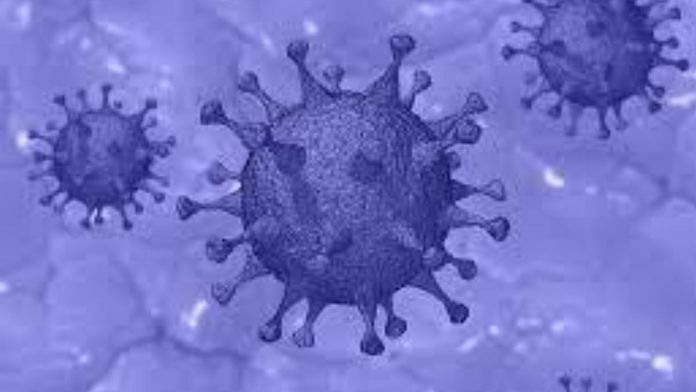New Delhi: Using the Kargil War as an analogy, ThePrint’s Editor-in-Chief Shekhar Gupta sought to explain the science of immunology in episode 551 of Cut The Clutter.
As the Covid-19 crisis persists, Gupta explained that there was much ‘fakery’ going around in the name of immunology, with many even selling immunity boosting products in the form of teas and medicines, among others.
It was unfortunate that the AYUSH Ministry had been promoting some immunity boosting products, he said, adding that folk science can at times be very dangerous. The answer to folk science was real science.
Using the war analogy, Gupta said just the same way a foreign force tried invading India in the Kargil war of 1999, in the case of Covid-19, the novel coronavirus is the foreign force trying to invade our bodies now.
Citing a report in The Atlantic by Ed Young, is which Young said, “Immunology is where intuition goes to die” is what prompted this episode of Cut The Clutter, said Gupta.
Gupta said the body’s immune system was so complex that it can surprise one at all times and scientists and doctors were constantly wrestling with it. Scientists can tell us about the mechanism of the immune system and how it responds. However, they cannot tell how effective it will be or if it is possible to eradicate the invader from the body entirely.
Also read: As TB diagnosis sees a fall, states are now testing Covid-negative patients for the disease
The first line of defence
Just like military strategy, the human immune system works in three stages when it is invaded by a virus like the coronavirus, said Gupta.
In Kargil, the mountains acted as an outer defence of India. The second line of defence were to be the border troops, who would buy time for more troops to come and help fight the invaders. However, during the Kargil war, there were no border troops because they had vacated their positions for the winter. So when the Pakistanis came, this line of defence did not exist, he said.
In the human body, the first line of defence is innate immunology. However, for people who have their immunity compromised or have a chronic disease, it is equivalent to border troops not being there. Then the virus or the invader goes deeper inside the body and settles down.
The human body has bronchial tubes which have cells in them and they start responding to the invader. The immune cells then release cytokines — large group of proteins, peptides or glycoproteins that are secreted by specific cells of the immune system.
Cytokines are of two kinds. One fights the virus and tries killing it right away. The second goes rushing to other parts of the body to give information to send more troops in the body to fight the virus.
Informers rush to the lymphatic system, which has sleeper cells in the body and in this process the cells release interferons. Interferons literally interfere with the reproductive process of the virus and try eliminating them. If the innate immune system is not able to stop the virus, then it buys the body time.
This is what the border troops could have done in the Kargil War if they were there.
While they are buying time, the lymph nodes — which have white blood cells — get the message to fight the invader. A single soldier becomes a battalion and can also be a brigade to fight the virus.
Also read: Govt expert group reviews 3 Covid vaccines in clinical trial stage in India
The next line
The second stage of the immune system is ‘specialised troops’, which are mustered from across the body to drive the invader out. However, the invader is not quiet and is digging into the body, said Gupta.
The body has T cells, out of which some of which are ‘killer T cells’. They kill the virus alongside other cells in the body. The ‘helper T cells’ boost the rest of the immune system by activating B cells, which help produce antibodies that eventually kill the virus.
This part of the immune system is called adaptive reaction.
These specialised soldiers of our body fighting the virus have a memory and that memory is the most important thing, explained Gupta.
In stage three of our immune system, the final phase, the immune system keeps the long memory both T cells and B cells have. This is so they know that the next time the virus attacks, they will go and take care of it immediately and will not need weeks or days.
Watch the latest CTC episode here:
Also read: T cells, B cells and the range of the human body’s immune response — A simple decoder



